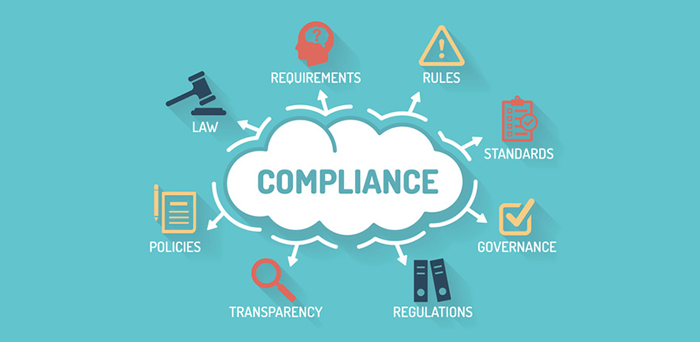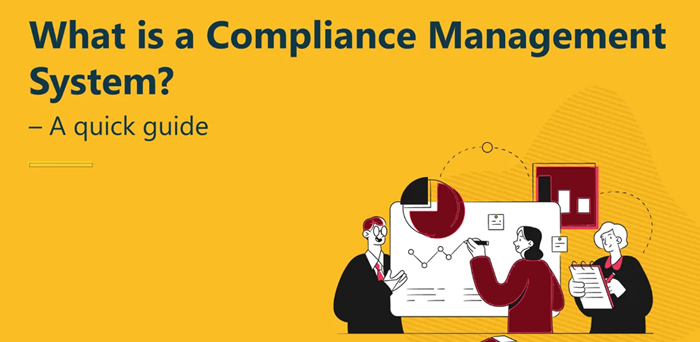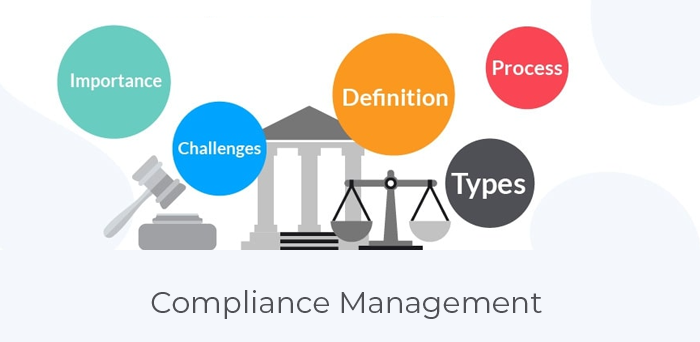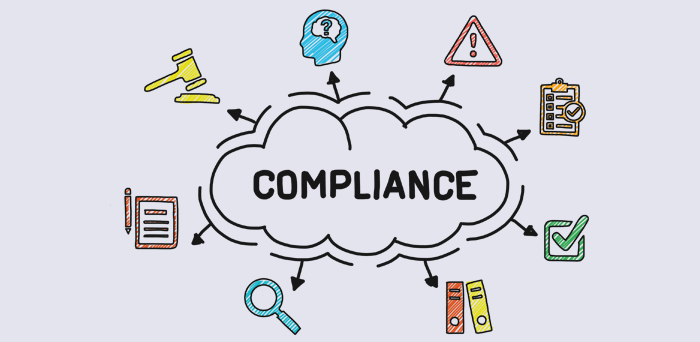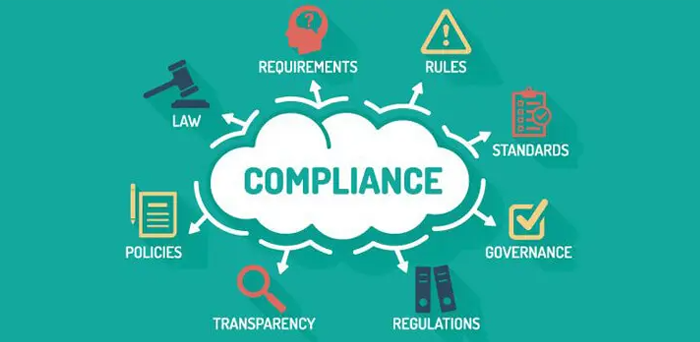
Why Compliance Matters for Businesses of All Sizes
Compliance has become an important ingredient of business success rather than an afterthought. Whether a small startup or a multinational enterprise, the survival and growth of business depends on compliance with applicable laws, regulations, and industry standards. The consequences of non-compliance can be severe: heavy fines, potential legal action, severe damage to one's reputation, and complicated operating issues. But there are many benefits in having a compliance culture.
Startups: Though the growth rate is a high priority for startups, non-compliance at the beginning can prove deadly. The key focus is on the following:
- Data Privacy: Startups rely on user data to drive growth and innovation, and as such, they must adhere to strict data privacy regulations, akin to the Indian Information Technology Act, 2000 (IT Act). These policies establish clear guidelines on what companies can collect, use, store, and share regarding individuals, ensuring safe data practices, robust protection against breaches, transparency in data management, and fair user consent protocols. Failure to comply with these regulations can result in severe penalties, reputational damage, and loss of client trust.
- Intellectual Properties: The start-ups consider innovative technologies, unique business models, and original contents to be valuable intangible assets by the majority. This is going to be protected with copyrights, patents, and trademarks. It will prove very handy in order to retain the competitive edge and prevent competitors from taking the same ideas.
- Employment Law: For the startups, they will deal with a complex web of employment law, which cuts across many areas, including discrimination, workplace safety, employee benefit, wage and hour requirements and hiring procedures. Failure to comply may attract costly litigation, penalties, and blow to the business's reputation as a moral employer.
Small and Medium-Sized Businesses (SMEs): Because they are operating in a more developed market, SMEs are exposed to a more diverse set of compliance issues. Critical areas of focus include:
- Tax Compliance: SMEs are subject to a number of tax duties, including payroll taxes, sales taxes, income taxes, and property taxes. Maintaining financial stability and avoiding penalties require timely and accurate tax returns. Significant financial losses and even legal ramifications may result from noncompliance.
- Environmental Compliance: Small- and medium-sized enterprises would depend on the respective industry's need and apply different environmental legislation on emissions, consumption of natural resources, and waste. Good and best practices in maintained nature should be adhered to, apart from pollution control with needed permits or harsh repercussions through penalties and court processes, plus damage to companies' reputation for environmental wrongdoing.
- Industry-specific standards: SMEs need to follow industry-specific standards and the corresponding regulatory conditions. Restaurants must be in accordance with food safety laws, while construction enterprises need to comply with the requirements on safety in constructions, and health care providers must abide by laws of patient's privacy and data security. The breach will have implications such as fines, suspension of license, or closure of business.
Large Corporations: Large Corporations operate in a very complex legal environment and have several problems to comply with. For instance, the focus is as follows:
- Financial Reporting: Large firms are governed by strict financial reporting rules such as those set out by the Indian Accounting Standards (Ind AS), which are based on International Financial Reporting Standards (IFRS). This ensures transparency and accountability in financial reporting and helps maintain investor trust, attracting capital and enabling companies to access low-cost capital based on proven and reliable financial reporting.
- Anti-Bribery and Corruption: Large businesses- those enterprises that are highly international- have obligations to comply with anti-bribery and anti-corruption regulations such as the Prevention of Corruption Act, 1988 in India. This Act forbids the act of bribing authorities outside of that country of operation and must have established internal controls strong enough in these businesses to not only halt but also find corruption in its various phases. Sanctions include; heavy crime and civil consequences, had image, lost business opportunities
- Data Security: Large businesses handle sensitive information such as employee and customer information and property. As the risk for cyber-attacks, data breaks, and data privacy increases, big companies need to have data security systems intact to safeguard such information. This is especially crucial in today's digital age, where data breaches can have significant financial and reputational consequences.
Consequences of Non-Compliance:
Organizations can mitigate non-compliance risks by implementing robust compliance management systems, conducting regular audits, investing in employee training, and leveraging technology to monitor and address compliance issues proactively. Building a culture of compliance ensures sustainability, growth, and trust in the long term. Non-compliance isn’t just a regulatory issue; it’s a strategic risk that can affect every aspect of an organization and with respect to legal, regulatory, and internal standards can have severe repercussions for organizations, impacting their financial stability, reputation, and operational efficiency.
- Financial Consequences: The financial implications of non-compliance can be staggering. Fines, court costs, and litigation expenses can quickly accumulate, leading to a substantial financial burden for the company. For example, fines and legal fees regarding one data breach can cost in millions.
- Legal Action: Sometimes non-compliance results in legal action that seems to appear like criminal charges and executive incarceration.
- Reputation Damage: Non-compliance seriously damages a company's reputation, causing a break in consumer confidence, diluting brand value, and increasing the challenges of attracting talent and investors.
- Operational Disruptions: Sometimes, non-compliance brings costlier audits, investigations, and remedial activities.
- Loss of Competitive Advantage: A company that does not abide by the policy might discover that it is behind a company, which may capitalize on the moment to get a market lead.
Additional Considerations for India:
-
India has the Data Protection Act, 2023, which imposes strict requirements on how companies collect, use, and store personal data. Non-compliance can result in hefty fines and reputational damage.
- Focus on Corporate Social Responsibility (CSR): Indian businesses are increasingly expected to demonstrate a commitment to CSR. Non-compliance with CSR regulations can lead to negative publicity and stakeholder backlash.
- Emphasis on Environmental Compliance: India has stringent environmental regulations, and non-compliance can result in significant fines and even criminal charges.
- Anti-Corruption Laws: India has strong anti-corruption laws, and businesses must ensure that their operations are free from bribery and other forms of corruption.
Conclusion
Compliance is not just a legal requirement; it's a strategic imperative for businesses of all sizes in India. By prioritizing compliance, businesses can build trust with customers, protect their brand reputation, and create a sustainable and ethical foundation for long-term success. If a company demonstrates commitment toward compliance, then it builds more confidence and trust with its clients and stakeholders, which enhances the relationship and reputation of the entire company.

